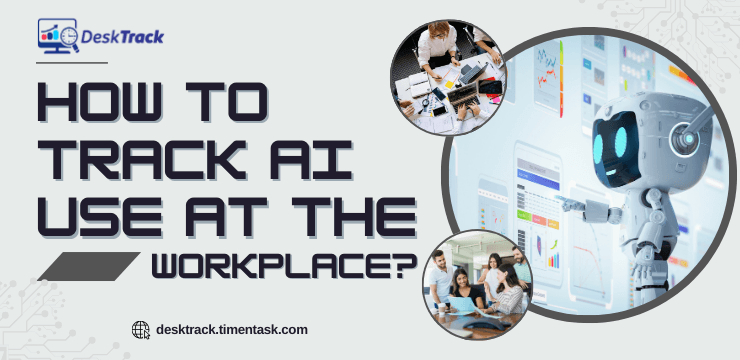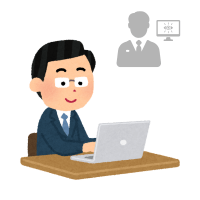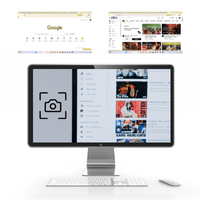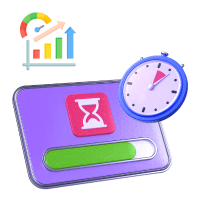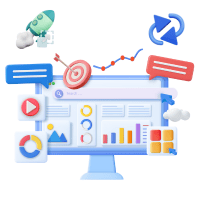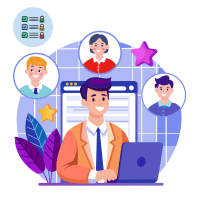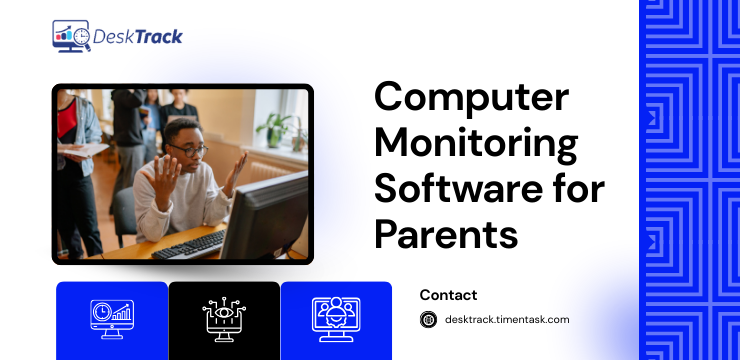Understand all you need to know in this complete guide on how to track AI use with employee monitoring software. Do you remember how we were afraid that artificial intelligence would eat up our jobs? Now that is put aside as bigger concerns are rising. Since AI implementation has become work standards, employees fear lacking the skills to succeed in this new normal.
That’s where you come in. Now, you have the responsibility to train your staff with the right training and tools. However, you need to understand how good your employees are at embracing this advanced technology. That’s why tracking AI use is crucial. You need proper visibility into how your teams use these tools to provide proper support.
By the end of today’s blog, you will have the best employee monitoring software to track AI use. Plus, we will also provide you with the 6 ways to do it and more. With that out of the way, let’s get started right away with it.
The Importance of AI in the Workplace
AI is transforming workplaces in ways unimaginable. Implementing it introduces work automation, saving us time for more crucial tasks. For instance, tracking AI use is essential for how:
- Your finance experts use it to automate data entry.
- Your legal teams depend on it for research.
- Your HR uses it to:
- Write job descriptions.
- Find new talent.
- Screen candidates.
- Evaluate performance
The possibilities are limitless. The outcome speaks for itself. Did you know that your sales teams can save 2 hours for customer checking and prospecting? Similarly, your marketing professionals can save 5 hours weekly by using artificially intelligent tools to make outlines and first drafts. Likewise, your cybersecurity experts can become 108 days faster at containing data breaches. Even 59% of HR professionals say that they fill new positions much better thanks to this technology.
Still, due to many concerns, it is essential to track AI use. Why? Around 50% of HRs surveyed fear the lack of knowledge and spread of AI will lead to employee misuse. There are also accuracy concerns. According to experts, 39% of marketers think that employees need more training and human involvement to effectively use these tools at work. It all begins with knowing who uses which AI tool and to what extent.
| By 2029, the use of artificially intelligent tools will save 12 weekly hours or around $100000 billable hours in some professions. |
Read Also: Top 15 Best HR Software for Your Business in 2025
The Importance of Tracking AI Use at Work
![]()
Another survey by IBM says that 42% of businesses use AI to make business operations more efficient. Others may soon do the same. However, for now, many businesses have ethical concerns. It is obvious for them to worry about trust, transparency, and data privacy.
So to get the maximum benefits of artificial intelligence, you need to diminish the risks involved. However, you can’t do both unless you are clear about how your employees use it. Tracking AI use lets you know:
- Which tools provide the most benefits?
- Which systems are riskier to your cybersecurity?
- Are any of the systems you are using, impractical?
- Do your employees use unauthorized tools?
6 Ways to Track AI Use with Employee Monitoring Software
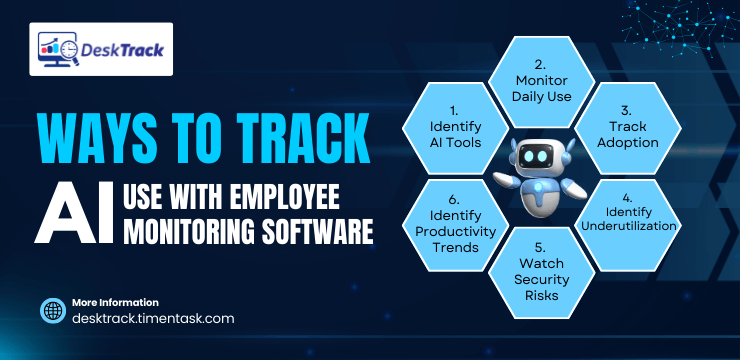
It is more important now than ever to track AI use with employee monitoring software due to its growing applications and usage implementations. These software solutions provide many benefits including employee productivity boosts and protecting your organization’s data. Additionally, they are also tracking how your employees and teams use artificial intelligence, these days.
The reason behind this is that employee productivity monitoring software solutions like DeskTrack make this job much easier and more accurate. Businesses of all sizes and sectors use such tools to measure and maximize the use of AI in their workplace. So here are 6 effective ways to get you started right away.
1. Identify AI Tools
Your first objective behind tracking AI use is to understand who uses what. You need to answer questions including:
- How many artificially intelligent tools do your employees use?
- Which ones are authorized and which ones are not?
- Are the unauthorized tools risky?
So when you track AI usage with the right monitoring software, you will have the answers to all these questions. Overall, this will help you identify the perfect AI tools for your workforce.
2. Monitor Daily Use
Tracking AI use properly also involves how your employees use these tools along with knowing which tools they use. The key is to measure software utilization, which lets you know when your employees use different tools, their impact on productivity, and which AI tools are worth the investment. For instance:
- DeskTrack’s reports can filter how your different departments use AI.
3. Track Adoption
Additionally, tracking how your employees adopt AI tools over time is also an essential part of your “track AI use” process. It helps you identify the popular tools in your workplace to ensure that you stay ahead of training requirements. For instance:
- If you see multiple teams use a specific tool or application daily, then you will ensure to add it to your new hire onboarding.
- However, if your employees adopt some tools quicker than your expectations, you will examine them closely. You need to identify whether these tools increase productivity or provide work quality-pooring shortcuts.
4. Identify Underutilization
Do you know, which employees are refusing to use some of the tools you invested in? Tracking AI use with employee monitoring software covers this aspect too. You see, slow adoption means there is either room for more training or the tool is useless. Moreover, in both cases, you will make a data-driven decision.
5. Watch Security Risks
Another reason to track AI use is that with the growing adoption of this technology, there is a greater threat to your cybersecurity. By actively tracking these tools, websites, and applications, you will know, which ones are unauthorized and pose a threat, and which employees are violating your rules. Detecting these issues as early as possible ensures that you:
- Secure sensitive and confidential data.
- Reduce the possibility of an expensive data breach.
Read Also: Top 15 Construction Project Management Software in 2025
6. Identify Productivity Trends
Here’s another reason why tracking AI use is crucial. Your employees may say that artificially intelligent tools are making them more productive. However, how many hours of your work-time are they saving? The right activity monitoring software tells you this too. For example:
- DeskTrack’s work-time utilization reports identify the most productive teams and individuals.
- It also provides you with the usage time on the various URLs, apps, and files. This information will let you know, which smart tools and assistants add more to the work performance of your employees.
Track AI Use More Accurately with DeskTrack

DeskTrack’s time tracking software runs in the background while accurately tracking the time your employees spend using various AI tools, URLs, and websites down to the last second. Not only that, you get real-time reports on the productivity and work performance of your teams and employees, helping you make the necessary changes on the go. With its plethora of features and functionalities including the mobile app, it’s the best tool for tracking the efficiency of your in-office, remote, and on-site teams.
Conclusion
So we hope that you know how to properly track AI use with employee monitoring software. As a final word, we can say that with the use of artificial intelligence tools, websites, and apps a common standard at workplaces, it’s essential to know how these tools are contributing to overall productivity and whether they are even beneficial for the teams and employees. The idea for you is to maximize the benefits of AI while eliminating the risks involved. Thus, it is crucial to use the right employee monitoring software that does it all for you. We recommend DeskTrack, which is the best for tracking employee efficiency in real-time.
Frequently Asked Questions (FAQ)
Q. How Important is it to Use AI in the Workplace?
Ans. AI is transforming workplaces in ways unimaginable. Implementing it introduces work automation, saving us time for more crucial tasks. For instance, it is essential to track AI use for how your finance experts use it to automate data entry, your legal teams depend on it for research, and your HR use it to, write job descriptions, find new talent, screen candidates, and evaluate performance.
Q. How Important is Tracking AI Use?
Ans. So to get the maximum benefits of artificial intelligence, you need to diminish the risks involved. Tracking AI use lets you know, which tools provide the most benefits, which systems are riskier to your cybersecurity, are any of the systems you are using, impractical, and do your employees use unauthorized tools.
Q. Can You Track AI Use?
Ans. Yes, artificially intelligent tools can be monitored. You can track AI use with employee monitoring software, which is the best way to also improve employee productivity over time.
Q. What are the Ways to Track AI Use?
Ans. Here are the top 6 ways to track AI use with employee monitoring software.
- Identify AI Tools
- Monitor Daily Use
- Track Adoption
- Identify Underutilization
- Watch Security Risks
- Identify Productivity Trends
Q. Which are the Best Employee Monitoring Software Solutions for Tracking AI Use?
Ans. Below, we have listed the top 5 software to track AI use at the workplace.
- DeskTrack
- ActivTrak
- Hubstaff
- Monitask
- Insightful
